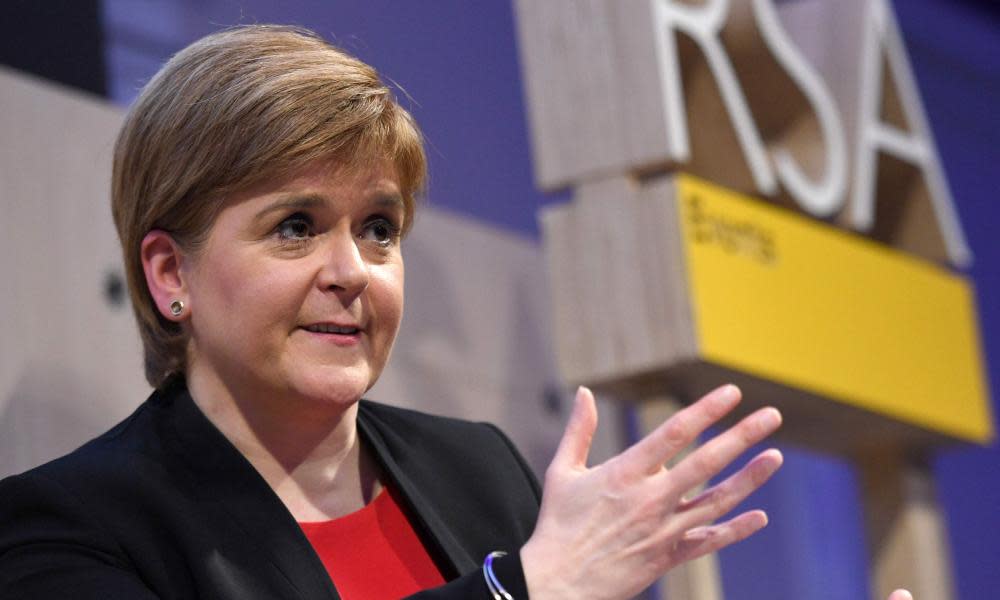Nicola Sturgeon calls for extension of Brexit transition period

Nicola Sturgeon has called for an extension of the proposed 21-month Brexit transition period to give the UK government more time to negotiate a compromise with opposition parties, in order to deliver a “commonsense” future relationship with the EU.
“If the last two years have shown us anything, it is surely that more time will inevitably be needed to agree the future relationship, and so being able to extend the transition period will be vital to avoid another cliff-edge scenario,” Scotland’s first minister said.
She urged Theresa May to reconsider her decision to withdraw the UK from the customs union and single market after Brexit, insisting staying in would be the “least damaging” option for the UK economy as a whole.
In a speech in London, Sturgeon also appealed directly to Conservative and Labour backbenchers to consider further compromises in the public interest, if and when the final Brexit deal is eventually subject to a parliamentary vote.
However, she ruled out the Scottish National party’s 35 MPs backing the prime minister’s final plan, suggesting the SNP had already compromised enough as Scotland had voted overwhelmingly to remain in the EU at the referendum.
Sturgeon later had a short meeting with May in the House of Commons after which the former said “fundamental issues” remained to be resolved between the EU and the UK.
A spokesman for Sturgeon said the first minister believed “membership of the single market and customs union would not only resolve those issues but also limit the economic damage that Brexit will cause”.
The first minister said last month that extending the timetable for the Brexit negotiations must remain on the table if the UK were to avoid an economic cliff-edge, but stopped short of calling for a postponement at that stage.
Last week, she told the SNP conference that Brexit made Scottish independence more likely than ever, as she challenged activists to increase their efforts to persuade voters across Scotland of the case for leaving the UK.
Setting out her reasons for May to back a compromise option that would result in the UK staying in the customs union and single market, Sturgeon claimed it was the only course of action that could potentially command a Commons majority.
“[Chequers] is not a serious and credible option. And the only reason it is the only option on the table is because the UK government has refused to countenance any others,” she said.
Sturgeon also raised the prospect of delaying the article 50 process – and the date the UK would leave the EU – to give ministers more time to look into alternatives. “That surely must be preferable to pressing ahead in a reckless and damaging manner,” she said.
The first minister predicted the government’s political declaration of the UK’s future relationship with the EU, if rushed, would “lack precise detail” and simply defer the risk of no deal until a later date.
“For MPs to support a bad or blindfold Brexit – a cobbled-together withdrawal agreement and a vague statement about our future relationship – would in my view be a dereliction of duty,” she said.
“It is my strong view that such a deal should be rejected – not in favour of no deal as some will try to suggest, but as a way of getting a better deal back on the table.”
However, the Scottish Tory constitution spokesman, Adam Tomkins, said: “If the SNP doesn’t back a deal it is automatically supporting a no-deal scenario … And, of course, they don’t care if outcomes are bad for Scotland, so long as they’re good for the prospects of another independence referendum.”

 Yahoo News
Yahoo News 
